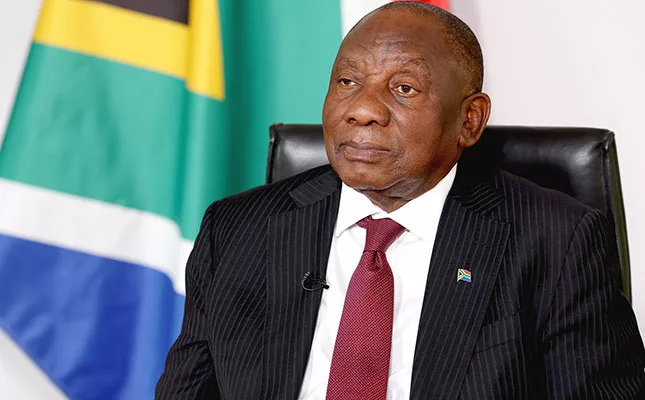
The announcement comes amid an ongoing legal challenge in the Cape Town High Court, where multiple stakeholders are contesting the legislation’s validity.
Ramaphosa specifically highlighted sections 19(2), (3) and (4) as problematic, noting that they “in error” allowed expropriation to take place before a landowner could challenge the matter in court.
He added that these sections may be “void for vagueness” and contradicted other parts of the Act.
In his affidavit, Ramaphosa requested that the court “remedy the unconstitutionality” of these sections by “reading in” amendments.
Concerns over nil compensation
Attorney Daniela Ellerbeck, manager of the Constitutional Rights Programme at the FW de Klerk Foundation, stated that while Ramaphosa’s admission pertained to sections allowing expropriation before landowners could challenge it in court, there were other provisions of concern, particularly the one allowing land expropriation at nil compensation.
“South Africa’s Constitution is clear: it requires that when any type of property is expropriated, just and equitable compensation must be paid. The Expropriation Act, however, introduces the possibility of nil compensation, which is not the same as just and equitable compensation,” Ellerbeck explained in a statement on the foundation’s website.
She added that in terms of Section 172(2)(a) of the Constitution, if the High Court finds the Act unconstitutional, its order must be confirmed by the Constitutional Court before it can take effect.
According to Section 31 of the Expropriation Act, the Act has not yet come into operation. The foundation confirmed that, at the time of writing, no commencement date had been promulgated.
Speaking to Farmer’s Weekly, Willie Aucamp, DA spokesperson on agriculture, said the party welcomed Ramaphosa’s admission, adding that it confirmed earlier warnings by Minister of Public Works and Infrastructure Dean Macpherson that the Act contained contradictory procedural mandates threatening its constitutionality.
Parliament may review Act
Aucamp added that the court did not have the authority to amend the Act and that it would have to be referred to Parliament if found unconstitutional.
“Parliament looks different today from when the Expropriation Act was passed in 2024, so the outcome could be different if it is sent back,” he explained.
AfriForum CEO Kallie Kriel also welcomed Ramaphosa’s statement, saying the court was not in a position to amend the legislation due to the extent of the changes required.
In his affidavit, Kriel said AfriForum believed the court should declare the Act unconstitutional in its entirety or, alternatively, direct the flawed sections back to Parliament for correction.
He also called for Ramaphosa to be held personally accountable for the negative consequences arising from his signing of the Act.
Stakeholders warn of economic impact
“There is a direct link between Ramaphosa’s reckless signing of the Expropriation Act and US actions against South Africa. Any job losses and growing poverty that result from this should be laid directly at the door of Ramaphosa and other ANC leaders,” Kriel explained.
He also accused Ramaphosa of misleading the court by claiming that the Government Printing Works was closed over the festive season when, in fact, it was only closed on public holidays.
This, he argued, delayed the publication of the Act, which had been signed on 20 December 2024, and “deprived MPs of their constitutional right under Section 80 to review it within 30 days”.
Get trusted farming news from Farmers Weekly in Google Top Stories.
➕ Add Farmers Weekly to Google ✔ Takes 10 seconds · ✔ Remove anytime









